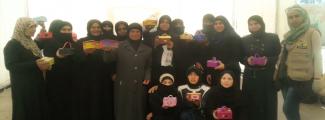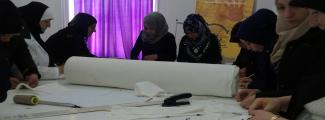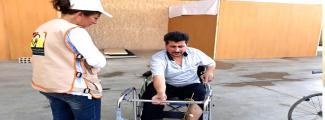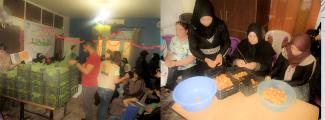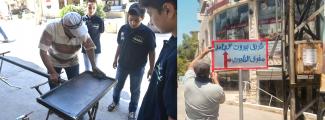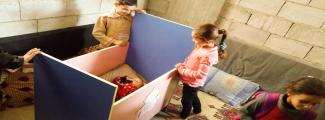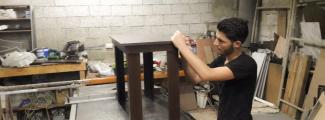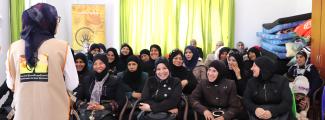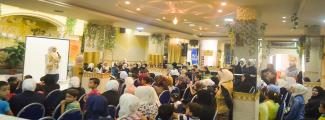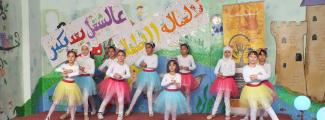How many children you know who engage in jobs totally unfit for their age and physical ability? Children who do jobs that deprive them of their basic rights, like playing and education? And the number of working children whom you don’t know is far greater than those you know!
SSSD conducted a survey at al-Hameh, Rural Damascus, on the number of working children, the nature of their work and the conditions they face at work. As a result, it turned that boys aged 12-17 are employed in workshops of a hazardous nature (carpentry, blacksmithing and car repair workshops). Their female peers, on the other hand, work in biscuit and cheese factories located in the area and other suburbs under overwhelming conditions (long working hours, low wages, cruelty and mistreatment). Children under 12 are less employed and most sell biscuits, socks or bread.
On the basis of this survey SSSD, in cooperation with UNHCR, organized the Too early to work! campaign, which aims to combat child labor and raise awareness about its dangers as well as about the importance of education as an inalienable right. The SSSD team carried out a series of activities at the Peace Community Center, al-Hameh (Rural Damascus), that were concluded on June 25, 2018, with the performance of songs and dances, a video projection, poetry recitation, discussion and dialogue. The children of the Peace Center, in cooperation with the children of the Child Protection Club, themselves from al-Hameh district, were the performers, since SSSD has a firm belief that community must inevitably address its own challenges.
The event was attended by 178 beneficiaries of both genders and different age groups and met with high appreciation by the community, which was obvious in the audience’s interaction throughout the whole performance. “I was deeply moved by the sad child’s expression when deprived of playing with his companions because of work,” said a mother. “To the point that I even cried for fear that my son would be exposed to such terrible stress.”

